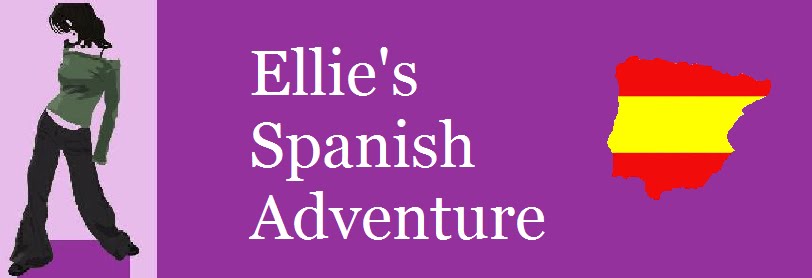In the conversation class today, we looked at superstitions again. It is an interesting topic and it was fun comparing the superstitions of our various countries, especially when they have slight differences.
***Complicated grammar coming up. If you can understand it, read on... it's good stuff!***
In B2 grammar, we continued with some high-level subjunctive/indicative uses, focusing on oraciones concesivas. I would be extremely surprised if I ever have to teach how using aunque with the subjunctive (see example a) expresses information already known by both parties, whereas the use of aunque with the indicative (see example b) demonstrates that there is new information being given to the interlocutor (yeah, I know!?!?)
Consider: a) Aunque sea inglesa, me gusta hablar otros idiomas.
and b) Aunque soy inglesa, me gusta hablar otros idiomas.
Both translate as "Although I am English, I like to speak other languages" but, in a) both the person talking and the person listening already knew that I am English, whereas in b) the person listening (the interlocutor) didn't know that I was English before I said this. In a), the most useful information is that I speak other languages whereas in b) the most useful information is that I am English.
Subtle, devious, complicated and... bloody brilliant!!!
This usage is most interesting because normally the subjunctive is used over the indicative when there is some element of doubt or hypothesis. In the case of aunque (and a pesar de que (despite) and por más/mucho que (however
After my private lesson on the imperative, I stayed for the culture class (also with Isa). No-one else is coming this week, but I am fascinated because it is about contemporary Spanish cinema. Today, Isa set the scene by telling me about how Spain came late to free ideas and democracy, post-Franco (ie 1975). I was rather ashamed of how little I know about Spain's political history and have been doing a Wiki* on it. Tomorrow, I will be finding out how the cinema flourished post-Franco.
* my new expression for using Wikipedia to find out information!

No comments:
Post a Comment